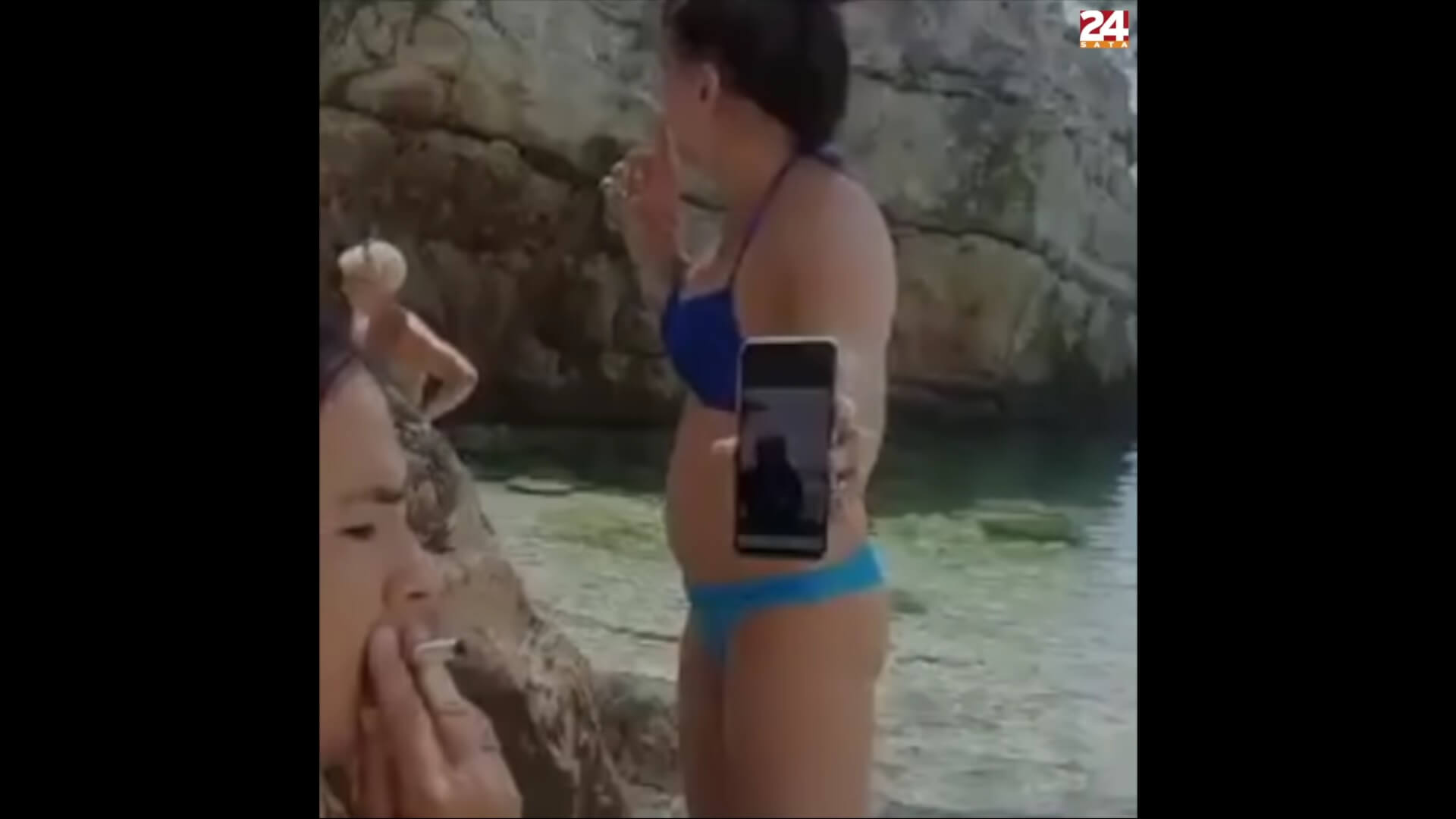Maritime Welfare in Croatia: Drvenik Case and What Law Says
June 25, 2021 - The issue of maritime welfare in Croatia was raised once again after a heated discussion on a beach in Drvenik Veli. Here are the details of the case and legal guidance to the maritime welfare in Croatia.
With the 2021 tourist season already being 58% better than 2020, tourists once again visit Croatia as one of the top holiday destinations.
However, like any year, the season can't go without at least some sort of incident.
Lovely beach, disgusting words
Yesterday, Croatia was shocked and enraged with the incident that happened on a beach on Drvenik Veli island (not so far from Trogir). Croatian journalist Tonka Alujević and her friend went to a beach where two Czech tourists started complaining that it's a private beach, perks of paying for a villa, and that Alujević needs to leave. Alujević refused to leave, stating that beaches are maritime welfare and cannot be privatized, refusing to move. After, as Alujević claims Czech tourists hit her head with a phone, they called the villa owner. 24 Sata daily newspaper published a video Alujević's friend recorded.
„Ma'ams, Ma'ams, how did you get here? On foot?“, asked the owner on a phone that was on speaker and held by the Czech tourists.
„I'm a journalist. Do you know Croatian laws? Do you want to end up in media?“ replied Alujević with a chill face while smoking a cigarette on a sunny day at the beach.
„Come on, put me in the media, come on put me! But first, go to the land register and see that my beach is private," screamed the owner in Croatian, with a lot of derogatory phrases (if only Czech tourists had a translator to understand the rich swear word heritage of Croatian language, right?)
The whole thing ended up with inspection stepping on the scene. Despite the video footage being clear, the owner, identified by Index.hr as Tomislav Meštrović, owner of Centovi Dvori Villa, tried to justify himself, saying everyone is welcomed at the beach, and he attacked the women because they passed through his doorway.
„No, I have no idea what video, who what... who knows what that is... I called the police for trespassing through my land“, said Meštrović to Index.hr when asked about the footage.

the conversation at the beach, screenshot/ 24sata
Law and order
Following this story, Index.hr's columnist Goran Vojković analyzed the law to clear up the issue of maritime welfare.
„The Maritime Welfare and Sea Ports Law states 'at least six meters from a line horizontally distant from the line middle waters'. But it can be wider, for example, if part of the land that in its nature or use serves to exploit the sea. It can also be narrowed- for instance, if support walls or a public road are close to the sea“, Vojković listed general rules but adding that maritime welfare border is specifically determined.
„So, the coast is free to use where the beach is, in general, six meters. You can come and use it for your needs, such as bathing, tanning, or walking. The land behind can be private, but the coast cannot“, concluded Vojković.
On the other hand, there are ways to limit the use of maritime welfare.
„There are some parts of the coast where you cannot enter. You can enter the marina and walk around it, but only until 10 pm. You cannot enter at all in a shipyard port. Those are the parts of maritime welfare for which the state assigned a concession to someone. The concession can limit or terminate public use“, explained Vojković.
Additionally, the law states that it is possible to have a beach in its concession and limit public entrance. But it needs to be registered, and the prices are so expensive that there are very few beaches like this in Croatia (Drvenik one not included in that small list).
„If someone claims that has a concession and that he/she can exclusively use some part of the coast, he needs to have a proof you can easily check in the register. I repeat, there are very small examples; even beaches in front of five-star hotels are public good“, Vojković pointed out.
And such beaches are filled with deck chairs, food stands, etc. But as Vojković pointed out, on a public beach, you have the right to bring your own deck chair, your own food, and drinks, and you can't be forced to consume content on the beach.
„In short, enjoy the Adriatic coast- with some very small exceptions of exclusive concessions, the entire coastline (including island coast) is free for your use and joy. Nobody can hold a grudge or complain if you came to a bath where they think it's 'their' beach. If someone is uncomfortable, don't debate, call authorities“, advises Vojković.

Pixabay
And the beach is open for public happily ever after
As Jutarnji List reported, the Drvenik case has a conclusion to an intriguing plot. Unhappy with Meštrović's behavior, Dalmatian locals went vigilantly and started writing bad reviews on Google, seeing the villa losing its value and tourists.
„Even though neither the building, nor its surroundings changed since the video was released, the unkindness of the owner was enough to move once-prestigious villa to the lowest grading Croatian places on Google“, says Jutarnji.
A couple of more lessons can be learned for a successful and enjoyable season from this tale.
For owners: present your offer fair in accordance with the law as transparency is the best way for your offer to beat the competition.
For tourists: if you were promised a private beach, but you see locals coming, don't be rude to them and don't attack them. The only one you can really be mad at is your host, who perhaps lied about what they can truly provide.
Learn more about beaches in Croatia on our TC page.
For more about travel in Croatia, follow TCN's dedicated page.
A Tale of Concessions and Politics - Dubrovnik's Cable Car Closes
If there's one thing Dubrovnik is good at, other than walls, history, and all the rest of it, it's getting in arguments with itself.
The city that needs tourists but often doesn't really treat them how they should be treated, the city that wants cruise ship money but must also cap vessel numbers, the city full of residents who can barely breathe for being squeezed out of their homes during the summer months but with a local government unit who claims to want to tailor the city to their needs.
The Pearl of the Adriatic is a strange place and paradoxical in many ways and in a multitude of ways, its sheer beauty is only skin deep.
The cable car, one of Dubrovnik's best attractions which rakes in eye-watering amounts of money per year, transporting hoards of view-hungry tourists up and down the majestic Srđ mountainside to the very top of the rugged mountain which towers over the city, after making them wait in the boiling hot sunshine in a long queue without any shade first, of course, has ceased its functions after much back and forth between the city and the company it belongs to.
As the stunning City of Dubrovnik appears on more and more humiliating ''avoid during summer'' lists published by major travel portals, it seems that its case of victimhood to its own popularity is becoming the least of its problems.
As Marija Crnjak/Poslovni Dnevnik writes on the 25th of April, 2019, the decision to ban the carriage of passengers by cable car up to the top of Srđ was issued in accordance with the provisions of the Law on Concessions.
Inspectors from the Customs Administration of the Ministry of Finance of the Republic of Croatia issued a decision today on the ban on carrying out the activity of transporting passengers from Dubrovnik to Srđ by cable car, which is owned by the Excelsa Nektetnine (Real Estate) company, which belongs to the well known Lukšić family.
The decision to ban the carriage of passengers by cable car has been issued in accordance with the provisions of the Law on Concessions, and is based on the fact that the company doesn't have a concluded concession contract. The company claims that the City of Dubrovnik never delivered such a contract after that law was passed.
Otherwise, the aforementioned company claims to have been seeking a concession from the City of Dubrovnik since as far back as 2015.
"We're extremely disappointed that the Customs Administration closed the cable car on Srđ today, after nine years waiting for a concession from the Republic of Croatia and the City of Dubrovnik. This decision will jeopardise a significant number of jobs at Excelsa Nekretnine and its 343 business partners, of which 130 are from Dubrovnik. More than 1400 Excelsa Nekretnine shareholders will suffer, including more than 300 from Dubrovnik.
Damage will also be felt by the state, and by the city and its citizens. The state budget will remain without tax revenues, the City of Dubrovnik will not realise any revenue from the concession, and the citizens who use the cable car at preferential prices, as well as tourists, will remain without the use of the simplest access to Srđ. The Museum of Homeland War on Srđ, owned by the City of Dubrovnik, is expecting to see a decrease in the number of visitors it gets, and guests of the city will remain without the ability enjoy one of Dubrovnik's biggest attractions,'' said Anto Rusković, the director of Excelsa Nekretnine.
Make sure to follow our dedicated lifestyle, business and politics pages for much more. If it's just Dubrovnik you're interested in, give Total Dubrovnik a follow. Heading to Dubrovnik and need a quick but comprehensive overview? Check out Dubrovnik in a Page.
Click here for the original article by Marija Crnjak for Poslovni Dnevnik
Woman Turned Away from Beach in Trogir, Concessionaire Offers Explanation
After the Parliament adopted the Law on Concessions a couple of weeks ago, multiple cases of concession holders banning locals from beaches have been reported. The latest comes from Dalmatia, where a woman named Barbara Buličić was asked to leave the beach at the Brown Beach House Trogir on Čiovo island on July 16, 2017.


